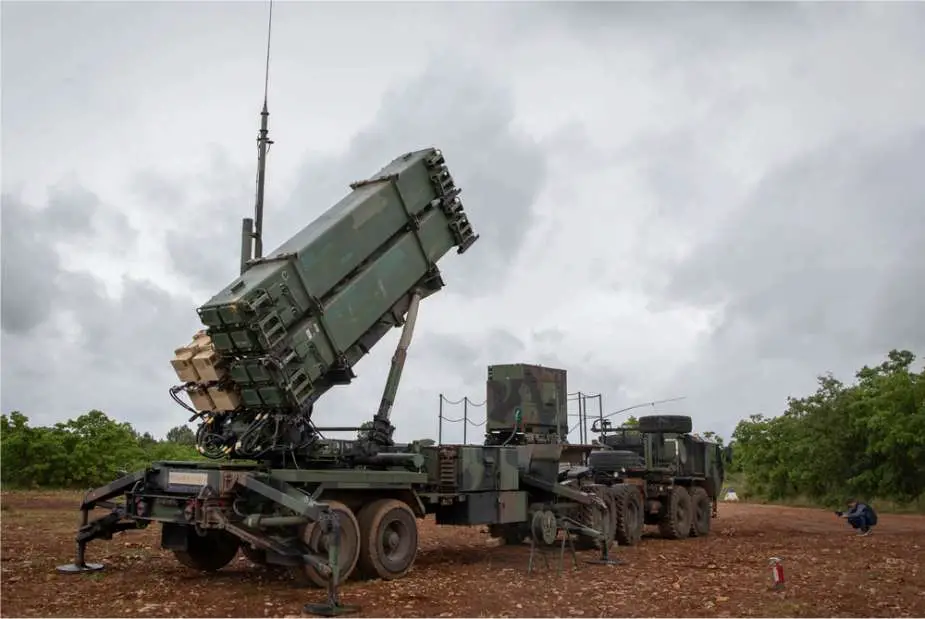Breaking news
Taiwan sends Its Patriot III missile launchers to US for evaluation.
Taiwan has dispatched its Patriot III missile launchers and their support vehicles to the United States for comprehensive performance evaluations. This live verification, which takes place every two years, is crucial for maintaining the operational readiness of the missile systems.
Follow Army Recognition on Google News at this link

US Army Patriot air defense system (Picture source: US DoD)
During a session at the Legislative Yuan, Kuomintang Legislator Chiu Chen-yuan questioned why these tests had to be conducted abroad. Cao Jinping, Chief of Staff of the Air Force Command, explained that this thorough evaluation must be carried out in the United States due to limited access to several key technologies associated with the Patriot III missile, which have not been disclosed outside of the United States.
The Patriot III missile, more formally known as the MIM-104 Patriot, is a long-range air defense system primarily used by the United States and a significant number of other countries. Developed and manufactured by Raytheon Corporation, an American defense and aerospace company, its development began in the 1960s and 1970s, aiming to provide an anti-missile and anti-aircraft defense platform capable of countering a range of aerial threats, including aircraft, drones, and tactical ballistic missiles.
The Patriot has evolved through different versions, with the Patriot III representing a significant improvement over its predecessors. It has been designed for better identification, tracking, and simultaneous engagement of multiple aerial targets, thereby providing extensive defensive coverage. This version incorporates technologies such as electronically scanned array (ESA) radar and a more precise guidance system.
It can be deployed in a short time, usually in less than an hour. Once deployed, the system can be reconfigured or moved according to tactical needs, offering significant operational flexibility. The Patriot III is capable of intercepting targets at altitudes of up to 24 kilometers, a feature that makes it particularly effective against high-altitude targets. Its interception range extends to about 160 kilometers, enabling it to cover an extensive area and neutralize various aerial threats, including medium-range ballistic missiles.
Defense Minister Chiu Kuo-cheng emphasized that these evaluations are a key aspect of military cooperation between Taiwan and the United States. He noted that the United States maintains exclusive control over certain technologies of the Patriot missile systems, which are not shared with Taiwan or other nations using these systems.
The Air Force Command highlighted its adherence to the lifecycle management guidelines provided by Raytheon, the initial manufacturer of the missile systems. An agreement with the United States for this evaluation has been established, and the Taiwanese military is collaborating with American shipping companies to ensure timely transportation of the missile systems.
The practice of conducting live-fire tests for Taiwan's Patriot missiles in the United States is a long-standing tradition, with the last test having taken place in 2021 at the White Sands Missile Range in New Mexico. Taiwan and Japan remain the only countries authorized to perform such missile tests on American soil.


























